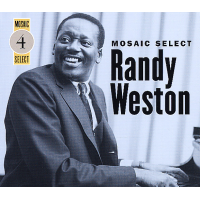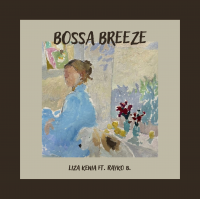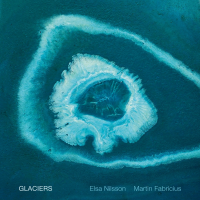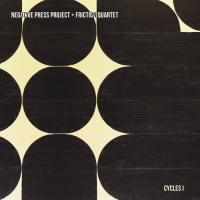Home » Jazz Articles » Album Review » Randy Weston: Mosaic Select 4
Randy Weston: Mosaic Select 4
This most recent addition to Mosaic's limited edition Select series bundles five early Weston releases from 1957-63, plus half an hour of unreleased material and one piece from a Roulette sampler. Three years after his first recording contract (with Riverside), he recorded the mostly trio Piano A La Mode with bassist Peck Morrison and drummer Connie Kay. These pieces display an elegance and restraint that never diminishes their crisp, swinging impact. "I Got Rhythm" illustrates Weston's never-predictable talent for hitting notes around the beat to round out phrases. In fact, for most of this set I found myself (sub)conciously keeping time, because—quite honestly—it's a fun thing to do when Randy Weston is around. The somber "Nobody Knows The Trouble I've Seen" digs deep into the soul of the spiritual, yet another root.
The first disc, representing two United Artist releases, launches with an attention-grabbing "Earth Birth." Melba Liston's thick septet arrangements work an Ellingtonian sophistication into the material (oddly enough, in 3/4 time); her trombone courses warmly throughout. Given this was recorded in 1958, its modern harmony and forward, interactive instrumental work set it apart. The undulating "Little Niles" starts out softly and builds energetic tension, Ray Copeland riding the waves with an extended trumpet solo that ends up shooting sparks skyward. "Spot Five Blues" heads into the heart of the blues with a prancing, eager zeal. Weston's skill as composer permeates this and the second set, a live all-star sextet recording also arranged by Melba Liston and featuring Coleman Hawkins' driving spirit on tenor.
The unreleased material from 1960 brings together a quartet with bassist Ron Carter, drummer Roy Haynes, and baritone saxophonist Cecil Payne. Payne's playing makes the quickest grab, as it reflects the warmth that has always been Weston's strength. (Baritones sure can go low... check out the apt "Honk Honk" for a brief reminder.) But Roy Haynes works his usual light touch into the proceedings, pattering here and playing a melodic role on the delicately swinging "Uncle Nemo." He interacts conversantly with Carter, whose own sense of melody never vanishes for long.
By far the most compelling material comes in the form of two African-influenced recordings made in 1960 and 1963. Weston was just beginning to turn his attention toward West Africa at this time, and so these tunes are a wonderful glimpse into his nascent change in direction. Uhuru Afrika leaves no doubt with its narrated introduction about African rebirth, four-drummer percussion section (including Nigerian master Olatunji), and regular bouncing calls to dance. The single four-part suite, arranged by Melba Liston for a large group, jumps from solo piano to thick coursing horns to drum conversation and vocals. ("African Lady" conveys a beautiful message, but the singing by Martha Flowers and Brock Peters sags way too far into sentimentality.)
The six tunes from 1963's Highlife echo Weston's travel to Nigeria, where that West African hybrid musical form was still in its nascent years. "Caban Bamboo Highlife" grooves along an easy swinging Caribbean pulse, a brief touch of tenor saxophone directly recalling Coltrane's Africa Brass. West Africa was being bombarded by New World diaspora influences in the early '60s, and so it's not at all inappropriate to journey to a New Orleans-inflected "Niger Mambo." "Congolese Children" showcases Weston's oddly dysharmonic treble theme, alternating with wildly celebratory horns. Not to slight the spirit of joy that permeates these tunes, but they rapidly fall away from any direct relationship to Highlife after the first three tracks.
Things like this are never to be taken for granted, but Mosaic has spoiled us to the point where we have come to expect a beautiful package, complete original documentation (including liner notes by Langston Hughes) and album covers, plus session photos. (Dig the picture of Weston's son Niles.)
Anyone who's curious about Weston's roots (including his turn toward Africa), as well as his productive relationship with trombonist and arranger Melba Liston, will find much to savor here. And quite honestly, if you aren't familiar with the pianist, I can't imagine a better place to start.
Issued in limited editions of 5000, these recordings are available solely through Mosaic Records; 35 Melrose Place; Stamford, CT. 06902; (203) 327-7111. Visit Mosaic Records for more information.
Track Listing
Disc One: Earth Birth - 2:52; Little Susan - 3:24; Nice Ice - 2:55; Little Niles - 6:00; Pam's Waltz - 3:15;
Babe's Blues - 6:58; Let's Climb a Hill - 5:53; Hi Fly [live] - 7:21; Beef Blues Stew [live] - 5:00; Star
Crossed Lovers [live] - 5:09; Spot Five Blues [live] - 10:42; Lisa Lovely [live] - 4:38; Where [live] -
5:57;
Disc Two: Earth Birth - 5:12; Nobody Know the Trouble I've Seen - 3:16; Saucer Eyes -
4:21; I Got Rhythm - 5:24; Gingerbread - 2:57; Coctails for Two - 3:37; Honeysuckle Rose - 6:30; Fe-
Double-U Blues - 5:37; Portrait of Patsy J - 4:09; Uncle Nemo - 5:01; Cry Me Not - 5:19; Honk Honk -
2:03; Saucer Eyes - 4:24; 204 - 6:34; C.B. Blues - 4:58;
Disc Three: Introduction: Uhuru
Kwanza - 2:35; First Movement: Uhuru Kwanza - 5:49; Second Movement: African Lady - 8:27; Third
Movement: Bantu - 8:07; Fourth Movement: Kucheza Blues - 8:03; Caban Bamboo Highlife - 2:46;
Nigger Mambo - 5:03; Zulu - 4:42; In Memory Of - 7:46; Congolese Children - 2:34; Blues to Africa -
6:23; Mystery of Love - 7:41.
Personnel
Randy Weston
pianoBenny Bailey: trumpet; Ron Carter: bass; Jimmy Cleveland: trombone; Kenny Dorham: trumpet; Booker Ervin: tenor sax; Gigi Gryce: flute, alto sax; Slide Hampton: trombone; Budd Johnson: clarinet, soprano sax, tenor sax; Melba Liston: trombone; Cecil Payne: baritone sax; Jerome Richardson: piccolo, saxophone; Max Roach: drums; Les Spann: flute, guitar; Julius Watkins: french horn; Randy Weston: piano; Aaron Bell: tuba; Armando Peraza: bongos, conga; Coleman Hawkins: tenor sax; Brock Peters: vocals; Quentin Jackson: trombone; Connie Kay: drums; Clifford Jarvis: drums; Ray Copeland: trumpet, flugelhorn; George Duvivier: bass; Yusef Lateef: flute, oboe, tenor sax; Kenny Burrell: guitar; Candido Camero: conga; Clark Terry: trumpet, flugelhorn; Frankie Dunlop: percussion, drums; Martha Flowers: vocals; Roy Haynes: drums; Freddie Hubbard: trumpet; George Joyner: bass; Wilbur Little: bass; Peck Morrison: bass; Charlie Persip: drums, tympani; Tuntemeke Sanga: narrator; Sahib Shihab: alto sax, baritone sax; Idrees Sulieman: trumpet; Archie Lee: percussion, conga; Richard Gene Williams: trumpet.
Album information
Title: Mosaic Select 4 | Year Released: 2003 | Record Label: Mosaic Records
Tags
PREVIOUS / NEXT
Support All About Jazz
 All About Jazz has been a pillar of jazz since 1995, championing it as an art form and, more importantly, supporting the musicians who make it. Our enduring commitment has made "AAJ" one of the most culturally important websites of its kind, read by hundreds of thousands of fans, musicians and industry figures every month.
All About Jazz has been a pillar of jazz since 1995, championing it as an art form and, more importantly, supporting the musicians who make it. Our enduring commitment has made "AAJ" one of the most culturally important websites of its kind, read by hundreds of thousands of fans, musicians and industry figures every month.
























